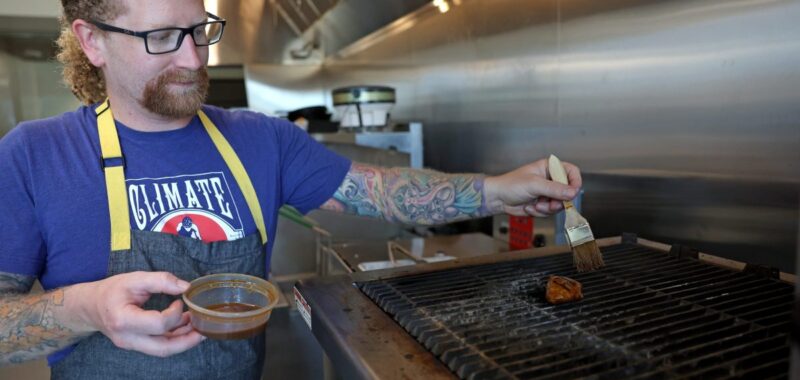
TALLAHASSEE, Fla. (AP) — A manufacturer of “lab-grown” meat has filed a lawsuit challenging a newly enacted Florida law that bans the sale of the product, arguing the restrictions give an unconstitutional advantage to Florida farmers over out-of-state competitors.
“If some Floridians don’t like the idea of eating cultivated chicken, there’s a simple solution: Don’t eat it,” said Paul Sherman, an attorney at the Institute for Justice, one of the groups that filed the lawsuit in the U.S. District Court for the Northern District of Florida.
U.S. regulators first signed off on the sale of what’s known as “cell-cultured” or “cell-cultivated” meat in June of 2023. Sellers say the product is a more ethical and sustainable alternative to conventionally raised chicken, beef and pork.
But lawmakers in Florida and Alabama have called cultivated meat a threat to their states’ agriculture industries and banned the sale of the product, which is made of animal cells that are fed a mix of proteins, vitamins and water and then formed into nuggets, sausages and steaks.
Asked for comment on the lawsuit, a spokesperson for Gov. Ron DeSantis pointed to statements he made in May when he signed the state’s cultivated meat ban into law, flanked by cattle farmers.
“We stand with agriculture, we stand with the cattle ranchers, we stand with our farmers because we understand it’s important for the backbone of the state,” DeSantis said. “Take your fake lab-grown meat elsewhere.”
Upside Foods, the manufacturer behind the lawsuit, held a tasting party in Miami before the ban went into effect, plying guests with cultivated chicken tostadas garnished with avocado, chipotle crema and beet sprouts.
“This is delicious meat,” Upside Foods CEO and founder Uma Valeti said. “And we just fundamentally believe that people should have a choice to choose what they want to put on their plate.”
Valeti also noted that the meat his company produces is not coming from a lab but from a facility more closely resembling a brewery or a dairy processing plant.

